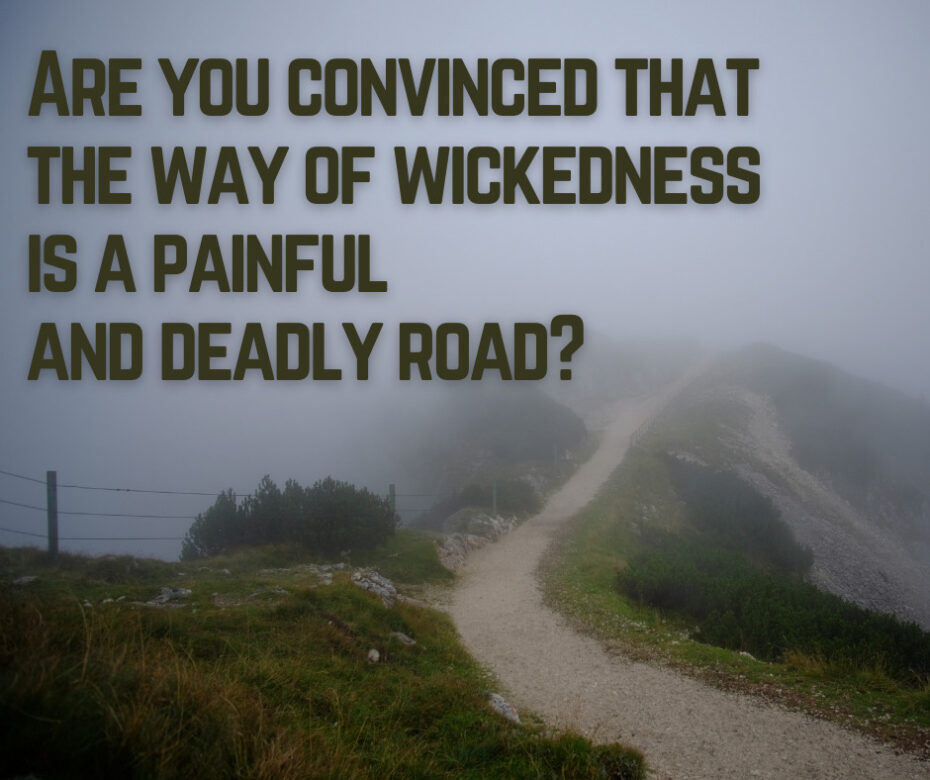Introduction
The expression turn and live is found in Ezekiel 18:32 and 33:11.
I chose that for the title of a book I wrote on repentance.
But what did Ezekiel mean? And what does the Bible have to say about repentance?
Most Evangelicals today believe that repentance is one of several conditions of everlasting life. Other conditions they may mention would be faith in Jesus, inviting Christ into your life, receiving Him as your Lord and Savior, submission, commitment, and obedience. But repentance is widely held as required for the new birth.
In John 3:16, the Lord Jesus said that whoever believes in Him will not perish but has everlasting life. Is that true?
Or should He have said, “whoever believes in Him and turns from his sins will not perish but has everlasting life”?
Both in the Old Testament and the New Testament repentance is turning from sins. Compare Matt 12:41 and Jonah 3:10. See also Rev 9:20-21 and 16:9-11.
People often cite verses out of context. That is particularly true with “turn and live” in Ezekiel 18 and 33.
Many people cherry pick out the idea that if a wicked man turns from his wicked ways, he will live (Ezek 18:32; see also 18:21-23).
But they fail to read Ezek 18:24 to get the full picture.
On the one hand, if the wicked man turns from all his sins, then he will live (Ezek 18:32).
On the other hand, “if a righteous man turns away from his righteousness and commits iniquity…he shall die” (Ezek 18:24).
Both are true.
The issue here is not eternal life versus eternal condemnation. The issue here is physical life versus physical death.
If Ezekiel were talking about everlasting life, then he would be teaching that one can lose everlasting life by turning from his righteous ways. But that is impossible (Gen 15:6; John 3:16; 5:24; 11:26).
The wicked does not refer to unbelievers. It refers to anyone, including believers, who are walking in spiritual darkness. The righteous refers to anyone, including unbelievers, who are walking in the light of God’s Word (e.g., Cornelius, Acts 10).
The same idea occurs all through the Bible. All aged 20 and over died in the wilderness because they listened to the ten spies and not to Joshua and Caleb. They rebelled against God, and all the adults but two died in the next 38 years.
Leviticus 26 and Deuteronomy 28 present the blessing and cursing motif.
Proverbs 4:10-19 speaks of the blessedness of the righteous man who walks in the wisdom of God’s Word and the cursedness of the wicked man who walks contrary to God’s Word.
Nadab and Abihu offered up strange fire at the start of the Law of Moses, and they died (Leviticus 10).
Ananias and Saphira lied about the gift they were giving at the start of the church age, and they died (Acts 5).
Walk in the light and you will experience the abundant life God desires you to experience. Turn away from the light and you will experience pain and suffering that those who walk in the darkness experience; and if you stay on that path long enough, you will die prematurely.
Repentance is one of the most misunderstood words in the Bible. But once we grasp what it means, it is a wonderful concept. God has made a way for the person who is on the path of death to escape. It is called repentance.
Anyone who continues down the path of rebellion against God is inviting more and more pain and ultimately premature death. Sooner or later, God will take his life. Repentance is the way of escape.
Turn and live. Turn from your sinful ways and you will enter the path of blessing. Length of days and fullness of life is found in walking in the light of God’s Word.
Note well the six short commands found in Prov 4:14-15: “1) Do not enter the path of the wicked, and 2) do not walk in the way of evil. 3) Avoid it; 4) do not travel on it. 5) Turn away from it, and 6) pass on.”


